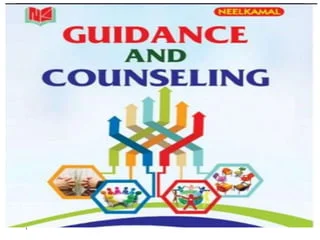Ph.D. in Counseling and Guidance: Introduction, Admission, Registration, Eligibility, Duration, Fees, Syllabus 2024

Introduction:
Embarking on a Ph.D. journey in Counseling and Guidance delves into the multifaceted aspects of mental health, equipping individuals with the skills to support and guide others through challenging life situations. This comprehensive guide sheds light on the admission process, eligibility criteria, completion time, career prospects, syllabus overview, internship opportunities, scholarships, and FAQs pertinent to this field.
Admission Process:
- Research: Explore universities offering Ph.D. programs in Counseling and Guidance, focusing on faculty expertise and research areas.
- Application Submission: Complete online applications, including transcripts, recommendation letters, statement of purpose, and GRE scores (if required).
- Interview: Shortlisted candidates may undergo interviews to assess research potential and fit with the program.
- Writing Sample: Submit writing samples demonstrating analytical and research skills, often focusing on mental health topics.
Eligibility:
- Educational Background: A master's degree in Counseling, Psychology, or related fields from a recognized institution.
- Academic Performance: Strong academic record, typically with a minimum GPA requirement.
- Clinical Experience: Prior experience in counseling or guidance settings, demonstrating practical skills and understanding of client care.
- Research Aptitude: Demonstrated interest and proficiency in research methodologies, often evidenced through academic projects or publications.
Completion Time:
The duration of a Ph.D. program in Counseling and Guidance usually spans 4 to 6 years, encompassing coursework, clinical training, research, and dissertation writing. However, individual completion times may vary based on research progress and program requirements.
Career Opportunities:
- Clinical Practice: Opportunities to work as licensed counselors or therapists in private practice, clinics, schools, or community mental health centers.
- Academic Positions: Roles in academia as professors or researchers, teaching and conducting research in counseling theories, interventions, and mental health outcomes.
- School Counseling: Careers as school counselors, providing guidance and support to students, addressing academic, social, and emotional needs.
- Career Counseling: Employment in career development centers or organizations, assisting individuals with career exploration, planning, and transition.
- Community Counseling: Positions in nonprofit organizations or government agencies, offering counseling services to diverse populations, including marginalized or underserved communities.
Syllabus:
- Counseling Theories: Exploration of major counseling theories and approaches, including cognitive-behavioral, psychodynamic, humanistic, and multicultural perspectives.
- Counseling Techniques: Training in counseling techniques and interventions for individuals, couples, families, and groups, addressing diverse mental health issues.
- Human Development: Study of human development across the lifespan, including cognitive, emotional, and social aspects, and implications for counseling practice.
- Group Dynamics: Understanding group processes and dynamics, facilitating group counseling sessions, and fostering communication and collaboration.
- Ethical and Legal Issues: Review of ethical guidelines, legal regulations, and professional standards governing counseling practice, confidentiality, and client rights.
Internship Opportunities:
- Counseling Centers: Internships in counseling centers, clinics, or hospitals, providing supervised counseling experience with diverse client populations.
- School Settings: Internships in K-12 schools or colleges, assisting school counselors with student support services, counseling sessions, and program development.
- Community Agencies: Internships in community-based organizations, offering counseling services, support groups, and outreach programs to local communities.
- Research Labs: Internships in research labs or institutes, assisting with data collection, analysis, and dissemination of findings in counseling research projects.
Scholarships and Grants:
- Institutional Scholarships: Universities may offer merit-based scholarships, tuition waivers, or assistantships to Ph.D. students in Counseling and Guidance.
- Professional Associations: Scholarships and grants from counseling associations or foundations supporting graduate education and research in the field.
- Government Funding: Federal or state grants for mental health research or workforce development initiatives may provide financial support to Ph.D. students.
- External Fellowships: Prestigious fellowships like the National Institutes of Health (NIH) or the National Science Foundation (NSF) offer funding and recognition for doctoral research in counseling and psychology.
FAQs:
Can I pursue a Ph.D. in Counseling and Guidance without a master's degree in the field?
While a master's degree in Counseling or Psychology is preferred, some programs may accept applicants with relevant degrees in related fields.
Is clinical experience required for admission to a Ph.D. program in Counseling and Guidance?
Prior clinical experience is beneficial but not always required. Admissions committees consider a combination of academic performance, research aptitude, and potential for clinical practice.
What types of research topics can I pursue in a Ph.D. program in Counseling and Guidance?
Research topics may include counseling outcomes, therapist-client relationships, cultural competence, trauma-informed care, and interventions for specific populations or mental health disorders.
What are the licensure requirements for practicing as a counselor or therapist?
Licensure requirements vary by state but typically include completing a graduate degree, supervised clinical experience, and passing a licensure exam. Ph.D. programs often provide the necessary coursework and supervised experience to meet licensure requirements.




